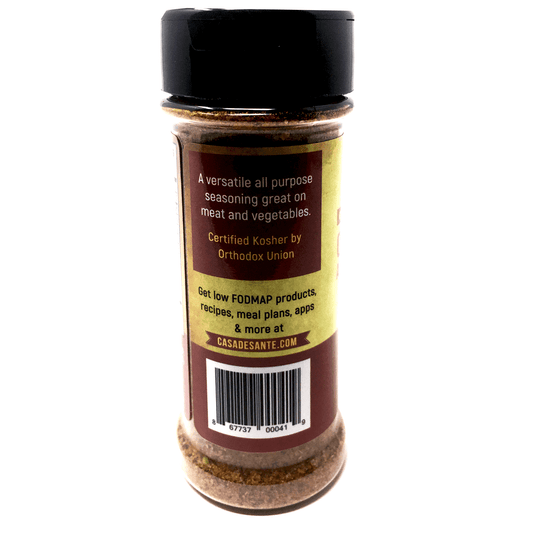Shingles (Herpes Zoster) is Increased in IBD: A Comprehensive Analysis
The connection between Inflammatory Bowel Disease (IBD) and increased risk of Shingles (Herpes Zoster) has been the subject of numerous studies in recent years. This article aims to provide a comprehensive analysis of the available research, highlighting the key findings and implications for patients with IBD. Additionally, it will discuss the role of gut health and the importance of proper management and support for those living with IBD.
Table of Contents
- Introduction to Inflammatory Bowel Disease (IBD) and Shingles (Herpes Zoster)
- Risk Factors for Shingles in IBD Patients
- Impact of IBD Medications on Shingles Risk
- Shingles Vaccination Recommendations for IBD Patients
- Gut Health and IBD Management
- Low FODMAP Diet and IBD
- Personalized Care for IBD Patients
- Food Sensitivity Testing and GI Labs for IBD
- Gut Health Apps and Monitoring Tools
- Educational Resources, Recipes, and Support
1. Introduction to Inflammatory Bowel Disease (IBD) and Shingles (Herpes Zoster)
Inflammatory Bowel Disease (IBD) is a chronic inflammatory condition that affects the digestive system, encompassing both Crohn's disease and ulcerative colitis. Patients with IBD often experience an immunocompromised status due to the disease itself, as well as the immunosuppressive and immunomodulatory therapies used to manage the condition. This weakened immune system makes IBD patients more susceptible to various infections, including bacterial, viral, and fungal infections.
Shingles (Herpes Zoster) is a painful skin rash caused by the reactivation of the varicella-zoster virus, which also causes chickenpox. The risk of developing Shingles increases as the immune system weakens, making patients with IBD particularly vulnerable. A meta-analysis of cohort studies found that IBD patients were 1.68 times more likely to develop Shingles than those without IBD, with similar risks for both Crohn's disease and ulcerative colitis patients.
2. Risk Factors for Shingles in IBD Patients
Various factors contribute to the increased risk of Shingles in IBD patients. These include:
- Immune dysfunction caused by IBD itself
- Immunosuppressive or immunomodulatory therapies used to manage IBD
- Age over 50 years
- Comorbid autoimmune diseases
- Asthma
- Diabetes mellitus
- Chronic pancreatitis
- Corticosteroid therapy
Understanding these risk factors can help healthcare providers identify patients with IBD who may be at higher risk of developing Shingles and take appropriate preventative measures.
3. Impact of IBD Medications on Shingles Risk
Several medications used to treat IBD are known to increase the risk of Shingles due to their immunosuppressive effects. These include:
- Thiopurines
- Anti-tumor necrosis factor-alpha (TNF-alpha) agents
- Combination therapy (thiopurines + anti-TNF-alpha agents)
- Corticosteroids
As a result, it is essential for healthcare providers to carefully consider the benefits and risks of these medications in IBD patients, particularly those with additional risk factors for Shingles.
4. Shingles Vaccination Recommendations for IBD Patients
Given the increased risk of Shingles in IBD patients, vaccination is an essential preventive measure. The American College of Gastroenterology recommends that all IBD patients aged 50 years and older receive a live attenuated Shingles vaccine at least one month before starting immunosuppressive therapy. However, this age threshold may be reconsidered, and vaccination could be administered at the time of IBD diagnosis.
It is important to note that live vaccines are generally contraindicated in immunosuppressed patients. However, recent studies have shown that IBD patients on immunosuppressive or immunomodulatory therapy did not experience serious adverse events after receiving a live attenuated Shingles vaccine. Furthermore, a new adjuvanted recombinant Shingles vaccine has been proven to be cost-effective and safe for use in immunocompromised patients. Further research is needed to determine the efficacy of this vaccine in IBD patients.
5. Gut Health and IBD Management
Managing IBD and maintaining gut health is crucial for preventing complications such as Shingles. This involves personalized care, dietary modifications, and regular monitoring of symptoms and treatment progress.
Casa de Sante: A Virtual Dietitian Support Platform
Casa de Sante is a leading virtual dietitian support platform for those following a low FODMAP diet, as well as individuals with IBD, IBS, SIBO, food sensitivities, celiac disease, GERD, diverticulosis, PCOS, weight loss or gain, autoimmunity, and other digestive disorders. The platform offers personalized care from an expert team of registered dietitians and health coaches, all from the comfort of your home.
6. Low FODMAP Diet and IBD
A low FODMAP diet can be beneficial for individuals with IBD, as it can help reduce symptoms and inflammation. Casa de Sante offers specially formulated low FODMAP products, including seasonings, protein powders, and supplements, designed for sensitive digestive systems. Additionally, personalized meal plans based on individual preferences and intolerances can help IBD patients enjoy delicious and nutritious meals while managing their condition.
7. Personalized Care for IBD Patients
Casa de Sante provides personalized care for IBD patients, taking into account their symptoms, labs, diet, and lifestyle. The platform's accessible virtual care ensures that each patient receives the support and guidance they need to manage their condition effectively.
8. Food Sensitivity Testing and GI Labs for IBD
Identifying the root causes of digestive issues is vital for effective IBD management. Casa de Sante offers comprehensive food sensitivity testing and GI labs to help uncover potential triggers for IBD symptoms. These tests can provide valuable insights into each patient's unique needs and inform their personalized care plan.
9. Gut Health Apps and Monitoring Tools
Casa de Sante offers convenient gut health apps to help IBD patients monitor their symptoms and follow their personalized diet. These tools can be invaluable for staying on track and identifying any potential issues or improvements in their condition.
10. Educational Resources, Recipes, and Support
Access to valuable educational resources, recipes, and support is crucial for IBD patients to maintain a healthy digestive system. Casa de Sante provides a wealth of information and guidance to help individuals navigate their journey to better gut health.
Take the first step towards relief with a free gut health assessment. Visit www.casadesante.com now and start your journey to better gut health.
























